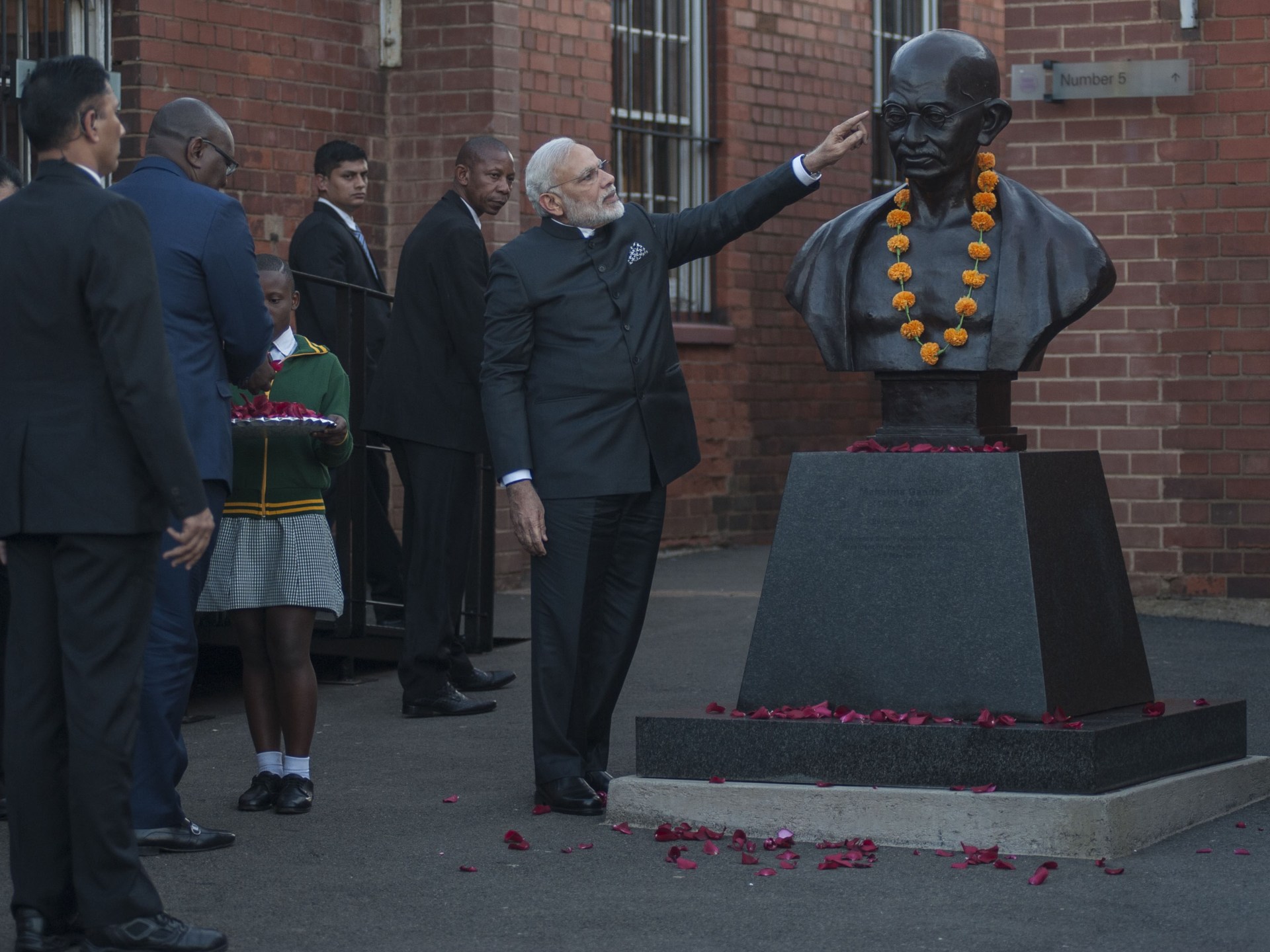
by Arooba Hamid 9 June 2023
In recent years, there has been a growing concern over the concerted effort being made to distort the curriculum in India, favoring a mono-cultural view at the expense of diversity. This distortion is not limited to the textbooks alone, but extends to the renaming of cities, roads, and buildings with names that evoke a Hindu identity. These changes are seen as part of a larger agenda by the Bharatiya Janata Party (BJP) government to make India a Hindu Rashtra. This distortion of the history aims to create a cultural hegemony, undermining the contributions of diverse communities throughout India’s history.
The ongoing “names change spree” aligns with the agenda of the BJP, guided by the Rashtriya Swayamsevak Sangh (RSS). By sanitizing history and downplaying the roles of the Muslim rulers, the Modi’s regime is promoting a distorted narrative that undermines the country’s pluralistic heritage. Indian historian Aditya Mukherjee highlighted that the demonization and erasure of a particular community from historical records are troubling signs of a potential genocide in the making. These actions breed an environment of hatred and polarization, posing a severe threat to communal harmony.
Muslims, Christians and Dalits are subjected to relentless targeting with impunity. Tragically, Rahit Vimula; a PhD scholar at Hyderabad University, succumbed to the discrimination he endured and took his own life. In his suicide note, he expressed his deep anguish, lamenting “my birth is my fatal accident.” Dr. B.R. Ambedkar, a Dalit and the architect of India’s constitution, is being degraded on the grounds of his communal background. This demeaning treatment undermines the very essence of inclusivity enshrined within the Indian constitution, thereby perpetuating a discriminatory agenda.
Furthermore, references to significant events are being selectively erased from textbooks. The 2002 Gujarat riots, the Godhra riots, and Mahatma Gandhi’s assassination by Nathuram Godse, an RSS militant, are conveniently omitted, thereby whitewashing crucial aspects of the India’s history. In a recent development, the National Council of Educational Research and Training (NCERT) removed references to former President of the All India Congress and India’s first education minister, Maulana Abul Kalam Azad, from Chapter-I titled ‘Constitution: Why and How’ in the class 11 political science textbook. Prior to the deletion, the paragraph highlighted that the Constituent Assembly had eight major committees chaired by individuals such as Jawaharlal Nehru, Rajendra Prasad, Sardar Patel, Maulana Azad, and Ambedkar. However, following the removal of Maulana Azad’s name, the revised paragraph now states that the Committees were typically chaired by Jawaharlal Nehru, Rajendra Prasad, Sardar Patel, or B.R. Ambedkar. This alteration raises concerns about the deliberate erasure of Maulana Azad’s significant contributions from the educational narrative.
Furthermore, the textbook’s tenth chapter titled ‘The Philosophy of Constitution’ also witnessed the deletion of references to the conditional accession of the Indian Illegally Occupied Jammu and Kashmir (IIOJK). The deleted sentence previously acknowledged that the accession of Jammu and Kashmir to the Indian Union was based on a commitment to safeguarding its autonomy under Article 370 of the Constitution, which the Modi’s regime abrogated in August 2019.
The consequences of this distortion are already evident. The name changes and erasure of historical events have fueled communal hatred. Minorities, particularly Muslims, face targeted violence from Sangh Parivar terrorists, while state institutions, including the judiciary, seem complicit by aligning themselves with the government’s narrative. Whenever dissenting voices clash with the narratives propagated by the RSS and BJP, they are effectively silenced. Both the RSS and BJP are actively promoting the slogan coined by V. D. Savarkar – “Hindu, Hindi, Hindustan.” The revisions in the educational curriculum shed light on the ongoing efforts to manipulate the narrative, selectively omitting significant figures and historical events. Such alterations not only distort the understanding of India’s constitutional history but also raise apprehensions about the preservation of a balanced and unbiased educational system.
In conclusion, the distortion of the educational framework in India is deeply concerning. It not only erodes the country’s historical identity and cultural diversity but also poses a threat to communal harmony. The manipulation of education and historical records promotes a mono-cultural perspective and undermines the democratic values that India stands for. It is imperative to safeguard the integrity of education and preserve the truth of history for the betterment of the nation.
The writer is a Lahore-based independent researcher.
